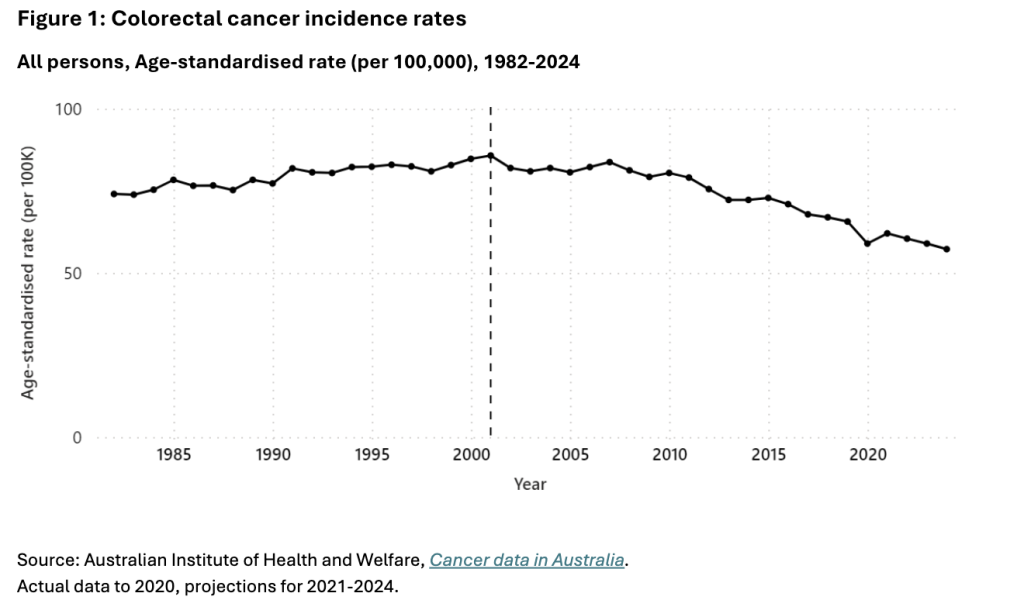Empowering patients through the new National Bowel Cancer Screening Guidelines

Australia’s National Bowel Cancer Screening Program (NBCSP) has recently undergone significant updates aimed at improving early detection and increasing survival rates. The program builds on years of vital progress, with ongoing efforts helping more Australians benefit from early intervention.
Early detection and timely access to diagnostic assessment for bowel cancer are crucial to increasing equity of healthcare and improving bowel cancer incidence and outcomes. The focus on updating the National Bowel Cancer screening program is extremely important as bowel cancer is now the second leading cause of cancer related deaths in Australia.

Here are some of the key changes to the NBCSP:
Lowered Eligible Age for Screening
The most notable change is the lowering of the eligible age for free bowel cancer screening, which originally commenced at age 50 for average-risk adults. From July 2024, Australians aged 45 to 74 are included in the free screening program.
However, there are key distinctions:
- Individuals aged 45 to 49 will not automatically receive a kit in the mail and will need to opt-in to the program. This is via requesting a kit through the National Cancer Screening Register or through their GP, utilising either the mail-out model or alternative access model.
- Individuals aged 50 to 74 will continue to receive a kit every two years by post.
Why this matters:
Screening earlier means more cancers can be detected at an earlier stage, improving survival rates and reducing the burden on families and the healthcare system.
Alternative access options
GPs: Under the NBCSP’s alternative access model, GPs can bulk order kits and provide them directly to eligible patients during consultations with the associated forms, which is particularly useful for reaching under-screened groups.
Your Role as a GP
Encourage Participation:
- Discuss the importance of screening during consultations, particularly opportunistically such as during health assessments.
- Emphasise the simplicity and effectiveness of the home test. The test is simple and non-invasive: patients collect two small stool samples at home and return it for analysis.
- Understand the surveillance strategies for patients with a family history of bowel cancer.
Follow Up on Results:
- Be ready to discuss results with patients who receive a positive result.
- Facilitate timely referrals for colonoscopy when needed.
Address Barriers:
- Educate patients about the safety and privacy of the test.
- Provide reassurance and support for those who may be anxious about screening or follow-up procedures.
GPEx-Supported NBCSP Learning Hub: Launching 30 June
To support healthcare professionals in maximising the impact of these changes, GPEx is launching the National Bowel Cancer Screening Program Learning Hub on 30 June.
This free online learning hub will offer:
- Free CPD-accredited events happening across Australia.
- Downloadable evidence-based resources and clinical guidance.
- Practical tools to improve screening participation and support under-screened populations.